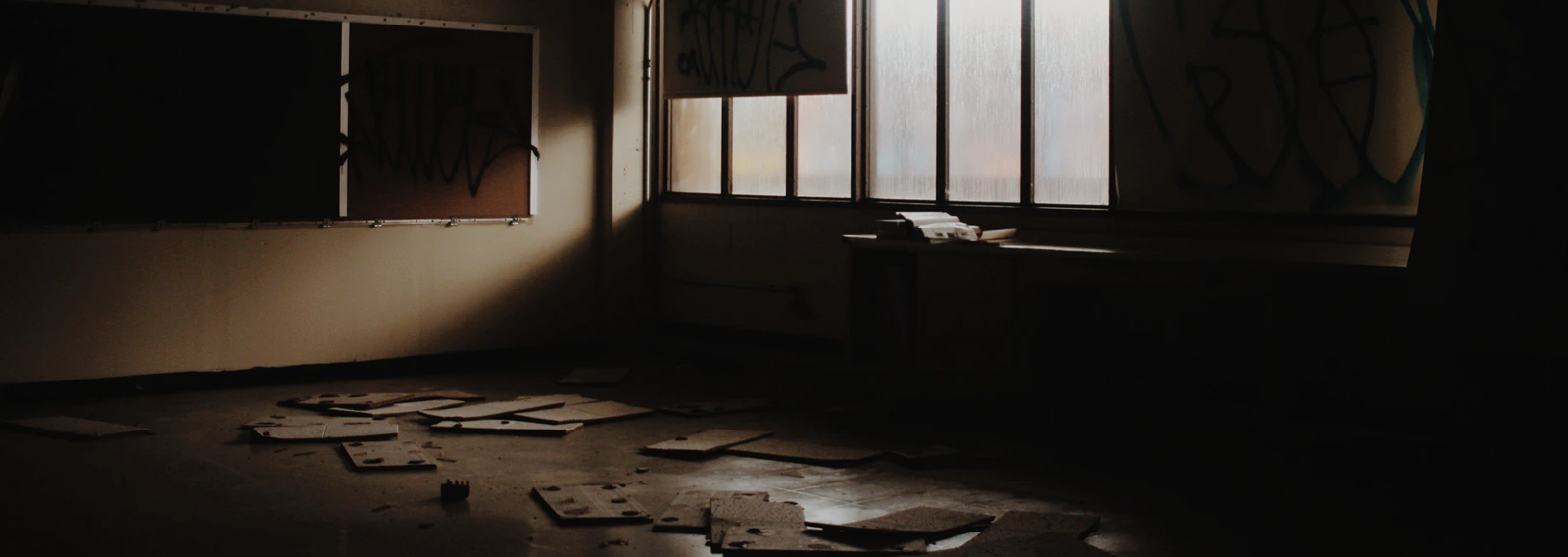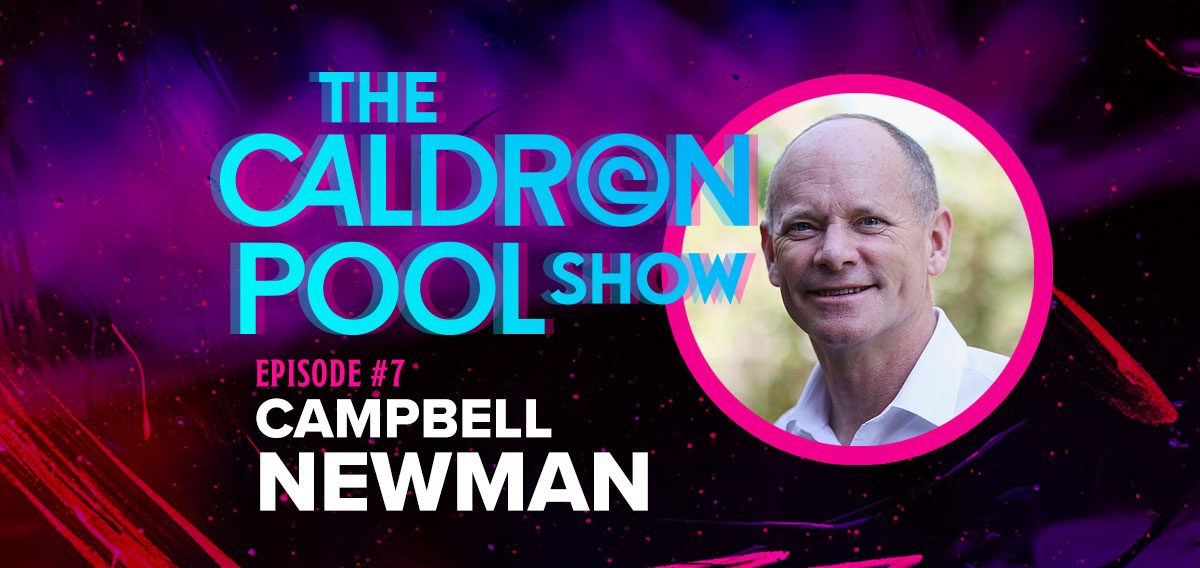‘Cognitive Dissonance’ NOUN. psychology. “the state of having inconsistent thoughts, beliefs, or attitudes, especially as relating to behavioural decisions and attitude change.“
You probably don’t support free speech, even though you say you do, and I want to prove it. How? Well, let me explain by showing what happened to my thinking on this topic.
I used to be a free speech absolutist, with qualifications of course – which begs the question, doesn’t it? Qualifications like you cannot make a death threat or you cannot shout fire in a crowded theatre. The standard conservative fare. But for virtually all other speech I believed there should be freedom for people to speak their conscience.
My position on free speech was formed by a large dose of having grown up in secular Australia, a peaceful, stable and prosperous society, which was influenced heavily by the USA, also a peaceful, stable and even more prosperous society, alongside a Protestant understanding of the Catholic Church’s punishments of heretics, dissenters and unauthorized Bible translators.
My appreciation of Anabaptist and Baptist history especially encouraged my views on free speech. There was also, in the past, an unrecognized influence of Hollywood propaganda on the issue. How much of what we think is really just regurgitated Hollywood propaganda?
You might wonder why Anabaptist and Baptist history fed into my views on free speech. It is simple, they were groundbreakers on the issue of freedom of conscience. Well, really, the Dutch and German Anabaptists were the groundbreakers in the 16th century and the English Baptists were their ideological heirs in the 17th century, even if they tried to distance themselves from their European cousins.
Perhaps the greatest example of this position, was Balthasar Hubmaier, who wrote a brilliant tract in 1524 called, Concerning Heretics and Those Who Burn Them, in which he argued against persecuting heretics, and makes a powerful case:
“8. This is the will of Christ who said, “Let both grow together till the harvest, lest while ye gather up the tares ye root up also the wheat with them” (Matt. 13:29). “For there must also be heresies among you, that they that are approved may be made manifest among you” (1 Cor. 11:19)…
“14. For Christ did not come to butcher, destroy, and burn, but that those that live might live more abundantly (John 10:10)…
“15. We should pray and hope for repentance, as long as man lives in this misery…
“16. A Turk or a heretic is not convinced by our act, either with the sword or with fire, but only with patience and prayer; and so we should await with patience the judgment of God…”[1]
Hubmaier was arguing for an early version of freedom of conscience and freedom of thought, and against burning heretics at the stake. You will never guess how he was executed for his radical views? Yes, he was burnt at the stake.[2]
Having grown up in a strong culture of Aussie freedom, I took great delight in seeing first the Anabaptists, and then the Baptists and other free-thinking Christians, like the Collegiants and Dutch Arminians, make the early case for freedom of conscience and expression. Especially considering this idea appeared to have done much good in the Western world. It is enshrined in the American Constitution, as the first amendment, and while free speech is not explicitly supported in the Australian Constitution, it is still implied in regards to politics and religion.[3]
Section 116 of the Constitution makes it clear that under Australian law we have the freedom to preach Christianity:
116. Commonwealth not to legislate in respect of religion.
The Commonwealth shall not make any law for establishing any religion, or for imposing any religious observance, or for prohibiting the free exercise of any religion, and no religious test shall be required as a qualification for any office or public trust under the Commonwealth.[4]
Christ, who is our ultimate authority, said to preach the word of God, and as the Commonwealth is not free to prohibit this, it follows that we have, at the very least, an implied legal right to religious free speech. The open and trusting Christian society Australia has always been, along with the relatively free religious culture this law allowed to flourish in Australia, is probably a large reason why Australians thought we did have a right to free speech here, and of course because we Australians watch so much Yankee TV.
I was delighted to be able to show links to this freedom all the way back to the type of Protestant Christianity that I upheld to this day, Baptist. I saw it as my duty to uphold this principle because to love our neighbour we need to be willing to hear them out, just as Hubmaier and many Anabaptists and Baptists argued we should.
Therefore, as a Christian, while I did not believe I had the right to say whatever I wanted, because I was to be bound by conscience and truth, I believed my neighbour had this right, because they were to be guided by their conscience, and their understanding of what is true.
But then I sought to make this case on Vox Popoli, Vox Day’s blog when they were discussing something regarding free speech. It was there that I heard the first truly persuasive argument against free speech: the case of Lady Chatterley’s Lover.
Like me at the time, you probably have never heard of this book. And really, it is not a book worth reading. But there is one reason why you should know about this book: it helped pave the way for the degraded, porn addicted, culture that the West is in bondage to today.
History.com[5] explains:
“On November 2, 1960, a landmark obscenity case over Lady Chatterley’s Lover, by D.H. Lawrence, ends in the acquittal of Penguin Books. The publisher had been sued for obscenity in publishing an unexpurgated version of Lawrence’s novel, which deals with the affair between the wife of a wealthy, paralyzed landowner and his estate’s gamekeeper. The book had been published in a limited English-language edition in Florence in 1928 and Paris the following year. An expurgated version was published in England in 1932. In 1959, the full text was published in New York, then in London the following year.”
This is not just an interesting footnote in the history of a book, this is pointing us to a landmark case that influenced the direction our culture has moved. As The Guardian tells us, “Sixty years on from the obscenity trial of Penguin Books, Lady Chatterley’s Lover remains a symbol for freedom of expression.”[6]
This obscenity trial helped to pave the way for the absolute degradation of our modern culture because it opened the door for the free publication of that which past generations would have seen as deplorable to be published for wide distribution in English. This is not my interpretation of the situation, this is what I was schooled on in that discussion on Vox Popoli, and it is just what happened.
The case of Lady Chatterley’s Lover…
…is credited as being a crucial step in liberalising the country’s cultural landscape, encouraging frank public discussion of sexual behaviour that meant sex was no longer a taboo in art and entertainment. It also shifted views on major human rights issues including the legalisation of homosexuality and abortion, the abolition of the death penalty and divorce reform.[7]
How are more of us not aware of this landmark case? It utterly changed the English speaking world.
Freedom of expression means freedom of expression, and this entails allowing things to be freely expressed that many Christians, and people of other faiths and even no faith, find reprehensive. Chatterley’s Lover is essentially porn in literary form, and while this may be a normal thing for the West today, this was not always the case. There was a time when public morality was much stricter.
I, foolishly, until that discussion, had not really considered the damage that porn written in words could do to a society. As a Christian, we can easily see the damage other forms of it have done. These more explicit and visual varieties are just the same bad thing, in a different medium. But it was Lady Chatterley’s Lover, which paved the way for much of the degradation we have today:
Philippe Sands QC, the writer, human rights barrister and president of English Pen, says that Lawrence is “unique in the annals of English literary history” and that the book “was at the heart of the struggle for freedom of expression” in the courts and beyond. Calling for support to keep the book in the UK, he says it is “a symbol of the continuing struggle to protect the rights of writers and readers at home and abroad”.[8]
This is not just because of the story it tells, but how explicitly it tells that story. Apparently, the book goes into graphic sexual detail, presents adultery in a favourable light, which is sadly commonplace today, and was freer with its language than was acceptable at that time.[9] This is all stuff people don’t bat an eyelid to anymore, but in that day and age, many were shocked at.
Effectively, this case helped progressives do what they love doing best: transgressing boundaries. Indeed, you could argue that this is the definitional pillar of progressivism, to smash every possible boundary and recreate humanity into the image of the boundaryless divinity, Baphomet. I do not think that every progressive is aware that this is what they are doing, but this IS what they are doing.
Herein, lies the reason I suspect that even though you might say you believe in freedom of expression, you very likely do not believe in free speech, especially if you are a Christian. Because I know you do not believe that porn should be disseminated freely or widely, but rather that it should be either banned outright (the best position) or heavily limited to who can watch it when (the current approach our TV stations take, but not strictly enough). And I know that pretty much every thinking Christian is genuinely concerned about the hyper-sexualisation of our culture that happens in the media, and especially how it affects many from too young an age.
Once you realize that porn is too dangerous to be free and accessible, a position which many people, not just Christians, agree with, you realize that you cannot continue in a state of cognitive dissonance that believing this and believing in freedom of expression puts you in.
You cannot both agree that expression should be free and heavily restricted. Once you realize this, you can freely move to the correct position: free speech is not good for humanity, or really good in pretty much any context. There should always be limits on what can be said when and where, and this is just wisdom. Clean speech is a far superior position and makes for a better way of life, and a better way for society.
I have to credit Vox Day, and many of the contributors to his blog, for opening my eyes up to this argument and what I see now is a very clear position. I also have to credit him for the insights from J B Bury’s book, A History Of The Freedom Of Thought, which I’ll share in a moment.
Nothing I have said here is particularly radical for the average believer, as I said at the beginning, “You probably don’t support free speech, even though you say you do, and I want to prove it.” The question is not, “Should we be absolutely free to speak?” The question is really, “Who should be the censors, and what should be censored?” We understand this intuitively, but the mantra of free speech propaganda often causes us to miss this.
There are always blasphemy laws in any culture, even a libertine culture, where it is blasphemy to say, “That is immoral”, or “Maybe you should have self-control,” or, “Do you really need another cookie?”. We Christians and conservatives in the West fell into the trap of believing that neutrality could exist in a nation. That is, we thought a society based on a secular public sphere, allowing a freely expressed marketplace of ideas was possible. But this was always a lie, and this is why such a society didn’t last very long.
Really, those who sought to break the boundaries of what could and could not be said were just using that as a means of usurping the Christian nature of the West and taking power for themselves, so they could then enforce their version of blasphemy laws.
Have you noticed how today’s almost exclusively leftist cultural elite are not even slightly interested in encouraging the free market of ideas any more? They want no part of free speech. Why is this? Their goal of taking power has been achieved. There is no desire for the anti-establishment to let people freely continue to criticize the establishment, once they become the establishment. No, it actually becomes a threat to their systemic control.
This is not my opinion of what has happened, either, elements of society have been agitating for the disestablishment of the church for some time, and they have been utterly successful. Here in Australia, it is not uncommon to see the media go after politicians who are open in their Christian faith, even if their advocated policies are not all that Christian. The eminent historian and Medievalist, J B Bury, told us that progressives viewed free speech as a means of achieving this goal of destabilizing the Christian West.
First, tradition had to be undermined, “It is only recently that men have been abandoning the belief that the welfare of a state depends on rigid stability and on the preservation of its traditions and institutions unchanged.”[10]
The process of dismantling tradition was encouraged by the effective and continued challenging of Western heritage, by the very elites who were supposed to preserve it. “DURING the last three hundred years reason has been slowly but steadily destroying Christian mythology and exposing the pretensions of supernatural revelation.”[11]
This was not the dispassionate scientific process that it is often presented as being in the movies. Humanity did not just wake up one day in a state of “enlightenment” and determine based on scientific reason that all tradition must be rejected. It was guided in that direction, by ideologues and freedom of expression was the tool used to achieve this end.
As Bury says, “…nothing should be left undone to impress upon the young that freedom of thought is an axiom of human progress.”[12] By “human progress” Bury, and many other enlightenment thinkers really mean less Christian. Indeed, this is explicit in Bury’s A History of the Freedom of Thought, for example: “In this sense, it might be said that ‘distrust thy father and mother’ is the first commandment with promise.”[13]
This is an explicitly anti-biblical command. This brings to mind Richard Dawkins misguided attempt to create a new 10 Commandments in his book The God Delusion, to replace the real ones.
These attempts to create new commandments are always foolish, because if mankind sees very little reason to follow God’s commands, why would he care about some enlightenment professor’s list?
It is important to understand that freedom of expression was only ever a tool for the enlightenment anti-Church thought leaders, to replace the authority of the Church, with their own values and Dogma, and authority:
Once the principle of liberty of thought is accepted as a supreme condition of social progress, it passes from the sphere of ordinary expediency into the sphere of higher expediency which we call justice. In other words it becomes a right on which every man should be able to count. The fact that this right is ultimately based on utility does not justify a government in curtailing it, on the ground of utility, in particular cases”[14] (emphasis mine).
Previous generations of enlightenment thinkers argued for, and even genuinely defended the principles of free speech. But once they had completely replaced the authority of scripture and the Church in guiding society, the doors began to close on anti-establishment sentiment, which Bury conceived as possible,
It is by no means inconceivable that in lands where opinion is now free coercion might be introduced. If a revolutionary social movement prevailed, led by men inspired by faith in formulas (like the men of the French Revolution) and resolved to impose their creed, experience shows that coercion would almost inevitably be resorted to.[15]
In other words, if socialists were to come to power or people of a similar ideology, freedom of thought would likely be smothered and thoroughly. This is precisely what is happening and, this is significant, was always going to happen. The enlightenment thinkers and those of us in the Church who foolishly sought to create a secular culture really just created a power vacuum, and that vacuum attracted the most power-hungry to fill it. They now guard their power with supreme jealousy.
So here is my mea culpa on free speech, I was wrong to ever defend it.
To summarize, free speech is neither possible, desirable, or sustainable. It is not possible, because as I said at the start, no one should be able to threaten someone, among other things. It is not desirable, because there should not be the freedom to degrade with porn, and other degradations, as there now is. And it is not sustainable, because it was simply a means to an end, which has been achieved, and it is now being shelved, as it always was going to be because power vacuums attract the powerful.
Indeed, this last point is so important. Because we Christians have been defending a tool which has been consistently used to undermine and degrade the Christian West. How the Devil must be laughing at us, for all the ways we have been fooled.
[1] Tanks To Tractors Blog, accessed 9/05/2021
[2] Encyclopedia Brittanica, Balthasar Hubmaier, accessed 9/05/2021
[3] Yeo, Amanda 2021, “Reminder: Australia Does Not Have Freedom Of Speech”, LifeHacker, accessed 9/05/2021
[4] Australian Constitution, Chapter Five: The States
[5]“Lady Chatterley’s Lover” Obscenity Trial Ends”, History.com, accessed 9/05/2021
[6] Baski, Catherine 2019, “Lady Chatterley’s legal case: how the book changed the meaning of obscene”, The Guardian, accessed 9/05/2021
[7] Ibid.
[8] Ibid.
[9] Ibid.
[10] Bury, J. B. 2004, A History of Freedom of Thought, Project Gutenberg (Kindle Edition, chapter one)
[11] Ibid. Chapter six.
[12] Ibid. Chapter eight.
[13] Ibid, Chapter eight.
[14] Ibid. Chapter eight.
[15] Ibid. Chapter eight.


















